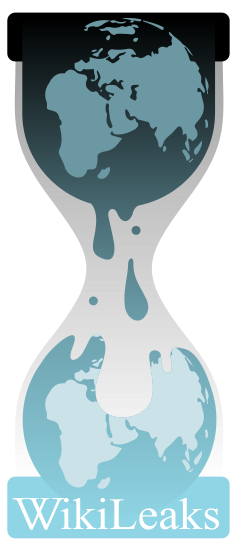
- Image via Wikipedia
I’m not often a huge fan of panel discussions, since it’s tough to get together enough people who really have something interesting to say.
However, I was definitely intrigued by the lineup at The Churchill Club’s event last night, entitled: WikiLeaks: Why it Matters. Why it Doesn’t? The headliner on the panel, was clearly Daniel Ellsberg, of Pentagon Papers fame, who has been quite vocal about the Wikileaks situation, and outspoken in his support for both Bradley Manning and Julian Assange. However, the panel also included astute commentators on the modern tech, media and legal worlds: Clay Shirky, Jonathan Zittrain and Peter Thiel. This was clearly an A-list panel. The fifth member of the panel was Roy Singham, the founder and chair of ThoughtWorks, a company that sponsored the event — which made me initially assume that he wouldn’t have much interesting to say. This turned out to be wrong as he added quite a lot to the conversation. In fact, all five panelists added some valuable and thought-provoking insights.
What we got was a fascinating, nearly two-hour discussion, on a variety of issues related to Wikileaks, transparency, freedom of speech, politics and the law, which never got slow or boring. The event was streamed live, and the Churchill Club has promised to include the video on YouTube, so I’ll post that video here as soon as it’s up. While it’s two hours long, I’d argue that it’s well worth finding the time to watch the whole thing. I’d argue that Ellsberg’s commentary is the highlight of the first hour, and Zittrain’s commentary is the highlight of the second hour (in fact, I don’t think he even spoke until almost an hour into the discussion). But the other three panelists all made some thought-provoking points as well.
Ellsberg kicked it off with a cogent analysis of the legal situation Wikileaks faces today. He noted that the US does not have an “Official Secrets Act,” which would make revealing secrets illegal. In fact, he notes that while Congress passed one during the Clinton administration, President Clinton explicitly vetoed it. Instead, all we have is the Espionage Act, which is targeted at spies for foreign countries, not Americans leaking information to Americans. He points out that it’s a huge stretch to make the Espionage Act cover leaking content, as it’s clearly not designed to do that. However, he thinks that the Obama administration is going to try to do so, and he had an intriguing theory as to why. He notes that the Supreme Court has never actually tested the legality of criminal sanctions for leaking info, and that most previous Supreme Courts would have almost certainly rejected such an interpretation of the law. However, he’s much less sure of the current Supreme Court, and he thinks the Obama administration is betting that the Supreme Court will back this questionable interpretation of the law.
He then explained his theory as to why Obama would do this, noting (fairly) that this is pure speculation on his part. He notes that despite all the talk about transparency that helped get President Obama voted into office, this administration has been much more secretive and involved in many more highly questionable acts than any previous administration. He noted that President Bush was involved in all sorts of questionable activities as well… but said that when push came to shove, President Bush was proud of his abuse of power, and happy to show it off when such stories leaked out. Obama, he feels, is actually quite embarrassed by his own abuse of power, and his response to such embarrassment is to try to keep stuff as secret as possible. It’s as if he’s declared war on whistleblowers who call attention to the things Obama is embarrassed about. Ellsberg notes that Obama has brought more indictments for leaking (five) than all other presidents (three) before. Thus, he’s hoping that he can use the Espionage Act as a de facto Official Secrets Act, with which he can intimidate the press, and effectively force them to give up any leak sources to prevent future leaks. Abuse of power equals the quest for more secrecy.








